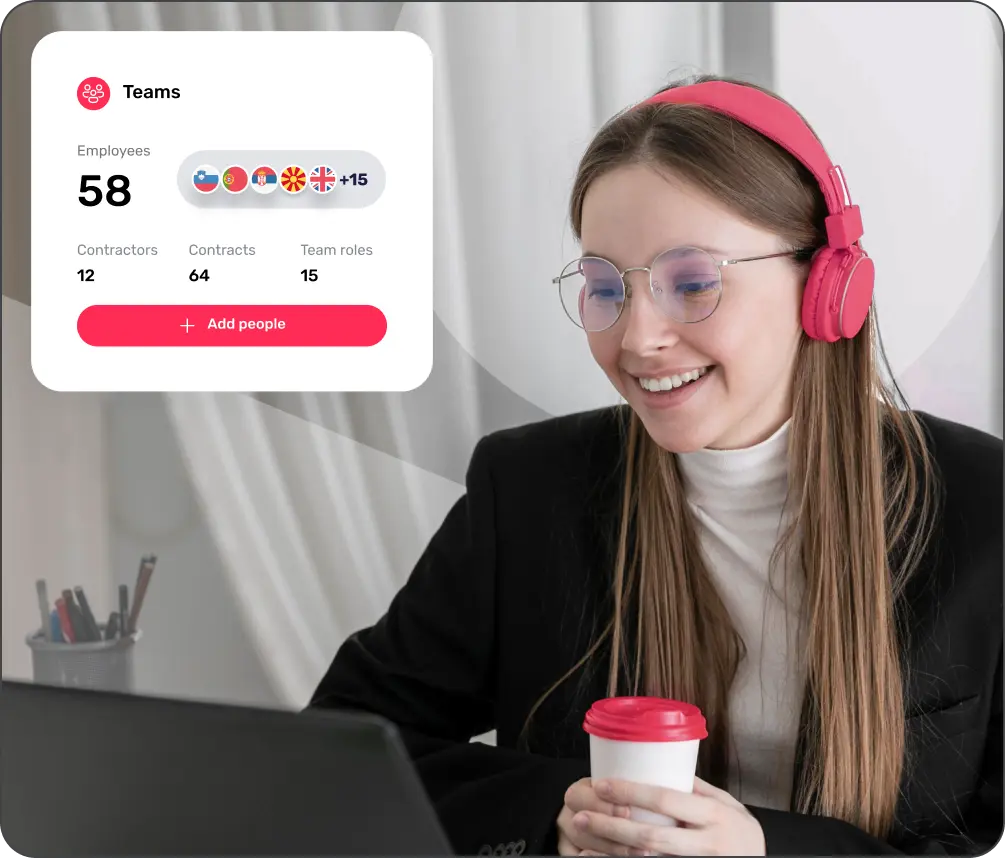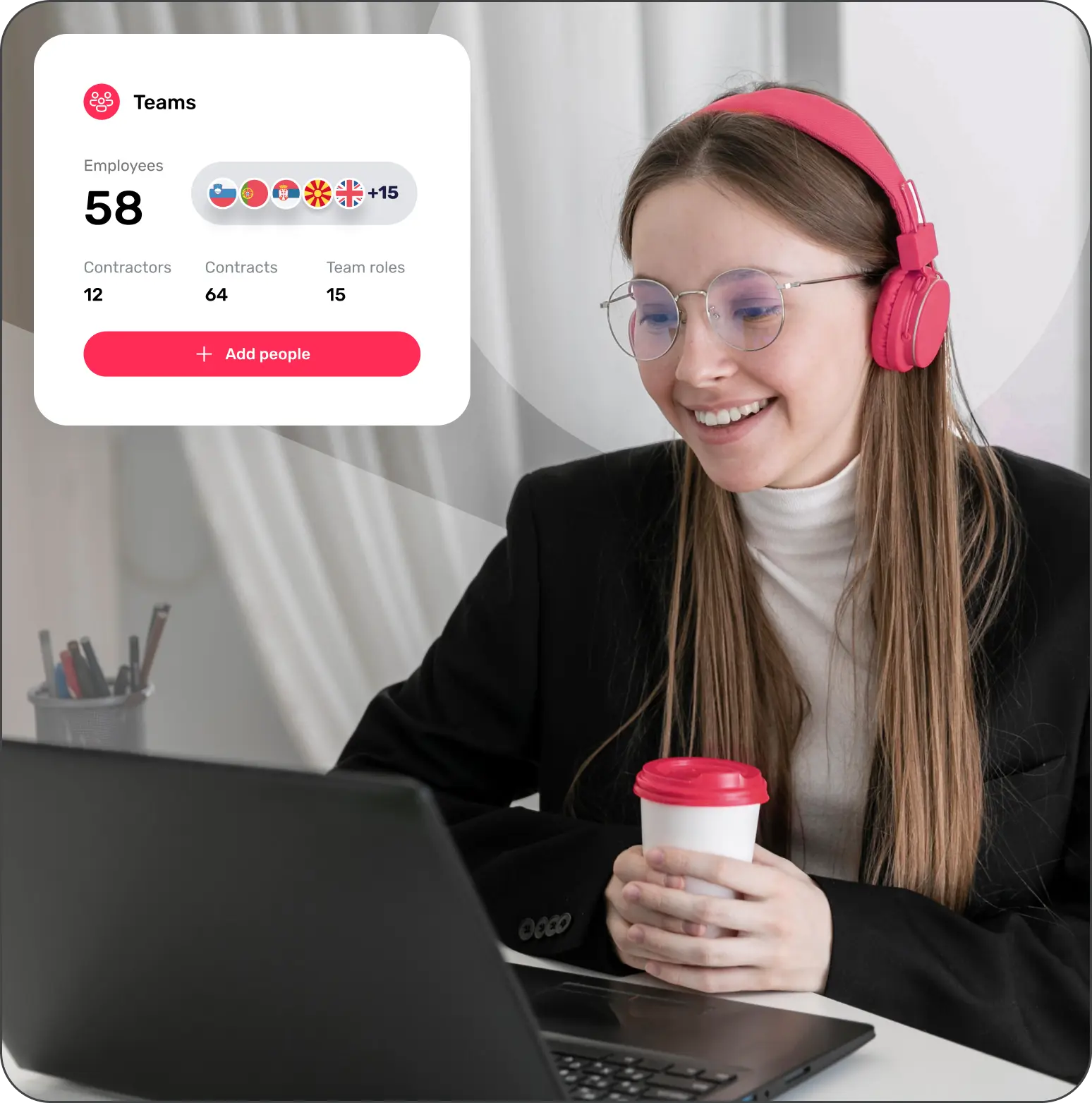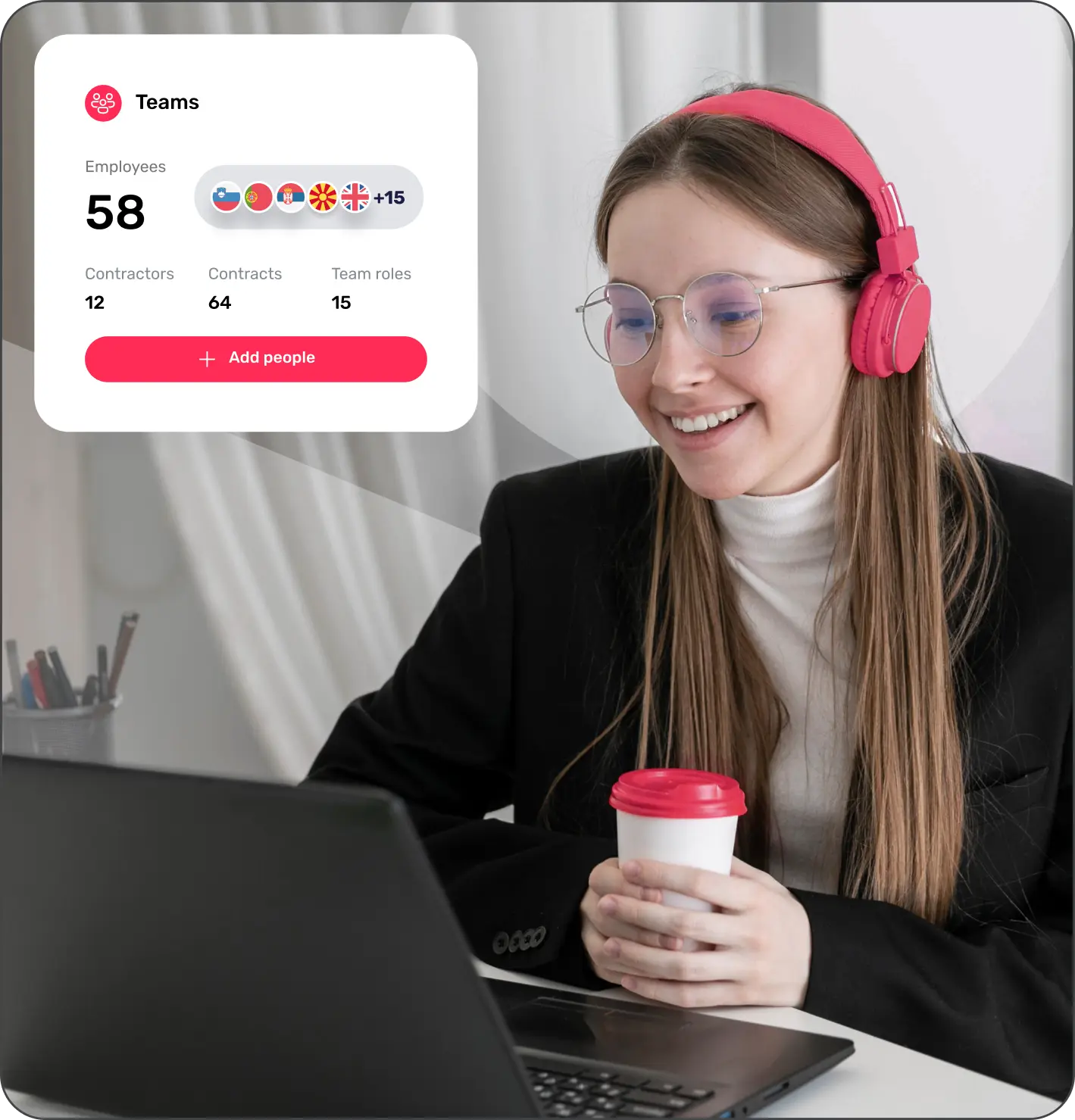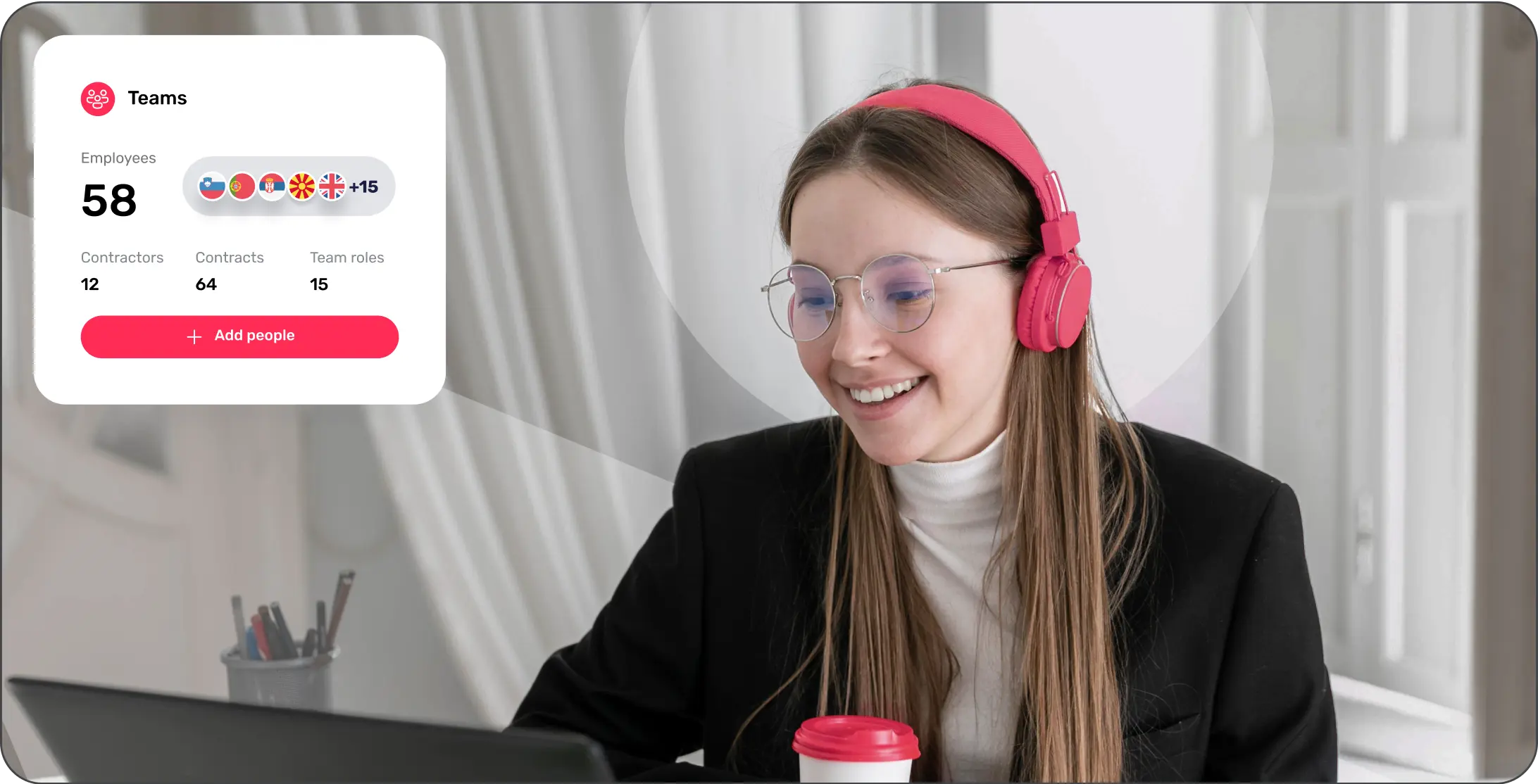
Employment
Legal employment for your global team
EOR (Employer of Record)
Your global team, locally employed
Entity Management
Set up and manage entities
HR, Payroll & Benefits
Manage all admin tasks from one place
Global Employee Benefits
Premium benefits for your global team
Relocation and Visa
Relocate your team anywhere
Employment Contracts
Localised employment contracts


Employer of Record (EOR) in Indonesia
With Native Teams as your Employer of Record in Indonesia, you can legally employ local professionals without opening a branch or subsidiary. We’ll handle everything from employment contracts and payroll to tax filings and benefits administration.
How does an EOR in Indonesia work?
When your company partners with Native Teams as your Employer of Record in Indonesia, we become the legal employer of your local team members. You still manage their day-to-day tasks, while we take care of employment contracts, salary payments, tax deductions, social contributions, and all mandatory compliance steps.
This allows you to hire quickly and compliantly without setting up a legal entity in Indonesia. Our EOR onboarding process is straightforward, once you’ve selected your candidate, we handle everything from contracts to onboarding, ensuring all legal requirements are met.
Who can use EOR Services in Indonesia?
We support businesses of all sizes, startups, SMEs, and large enterprises and our EOR services are ideal for companies looking to expand their operations into Indonesia without dealing with the cost, complexity, and legal obligations of creating a local subsidiary.
Whether you're hiring one employee or building a full team, our platform supports fast and compliant expansion.
Features of Native Teams EOR Services in Indonesia

We act as the legal employer on your behalf, issuing compliant employment contracts, onboarding your chosen talent, and registering them with local authorities. You get full workforce control while we handle compliance.

All HR tasks are automated, and essential documents are available with a single click via the Native Teams dashboard.

Native Teams processes monthly payroll in line with Indonesian tax regulations. We handle payslips, salary disbursement, and all statutory contributions, ensuring zero delays and full compliance.

We enrol your employees in mandatory Indonesian benefits schemes, such as BPJS Ketenagakerjaan and BPJS Kesehatan. Additional private benefits can also be arranged to attract and retain top talent.


Get insights on local laws, payroll, benefits, and more - all in one place.
What legal requirements exist for employment in Indonesia
Employers must provide written employment contracts that outline the terms and conditions of employment, including job duties, working hours, salary, benefits, and termination conditions. Contracts should be in Indonesian. If a bilingual contract is used, the Indonesian version prevails in case of discrepancies.
Foreign employees must obtain a work permit (IMTA) and a limited stay visa (KITAS). Indonesian nationals aren’t required to have special permits but must be registered with the relevant authorities.
Employers must register employees for the National Social Security (BPJS Ketenagakerjaan) program, which covers work accident insurance, old-age savings, pension benefits, and death benefits. They must also register employees for the National Health Insurance (BPJS Kesehatan) program.
Employers must comply with the provincial minimum wage standard and the standard working hours. The typical working hours are 40 hours per week, either as 7 hours per day for 6 days a week or 8 hours per day for 5 days a week.
Employers are responsible for withholding income tax (PPh 21) from employees' salaries and remitting it to the tax authorities. Employees must be registered for tax purposes and obtain a Tax Identification Number (NPWP).
Employers must comply with occupational health and safety regulations to ensure a safe working environment. They also must provide necessary safety training and equipment to employees.
Please note that all these requirements may vary depending on the job type, the employer and individual circumstances.

Why choose Native Teams as your Indonesia Employer of Record?
With legal entities spread across 95+ countries, Native Teams is your go-to platform for ensuring compliance when working globally. We provide everything you need to scale and improve - from compliant employment contracts, work permits and visa services to managing social contributions and taxes. Let us handle the paperwork while you focus on improving your craft.
What you need to know?
An Employer of Record (EOR) is a third-party service provider that legally employs workers on behalf of a company. While the company oversees the employee's day-to-day work, the EOR handles all legal and administrative responsibilities such as contracts, payroll, tax filings, and benefits registration in accordance with local laws.
This model is especially useful for businesses looking to expand into new countries without the cost or complexity of setting up a legal entity.
The cost of EOR services in Indonesia depends on factors like the number of employees, benefits required, and complexity of the employment terms.
Native Teams offers clear and competitive pricing designed to support growing businesses. To know more about our EOR pricing structure, please visit our pricing page.
An EOR fully assumes legal employment responsibilities, including payroll, taxes, and compliance. PEOs, however, operate under a co-employment model where the client retains legal employer status and shares responsibilities. EORs are ideal for companies expanding into new regions, while PEOs are useful for businesses with an existing legal presence looking to streamline HR processes.
An EOR service provider acts as the legal employer, ensuring labour law compliance and managing payroll, benefits, and employment contracts. They handle onboarding, offboarding, and administrative tasks, allowing businesses to focus on day-to-day operations while minimising legal risks.
Yes, using an EOR in Indonesia is completely legal and operates within the country's labour laws. Many international companies utilise EOR services to hire employees in Indonesia, while freelancers use them to secure formal employment.
An EOR allows you to bypass the complex process of establishing a legal entity in Indonesia. It handles all legal responsibilities, including payroll and compliance, so you can start operations quickly. Additionally, it provides flexibility to scale your business without the burden of setting up or closing a legal entity.
There are no legal restrictions on the number of employees you can hire in Indonesia as long as you comply with labour laws. Whether through an EOR or your own company, the number of employees you can manage depends on your business capacity and resources.










